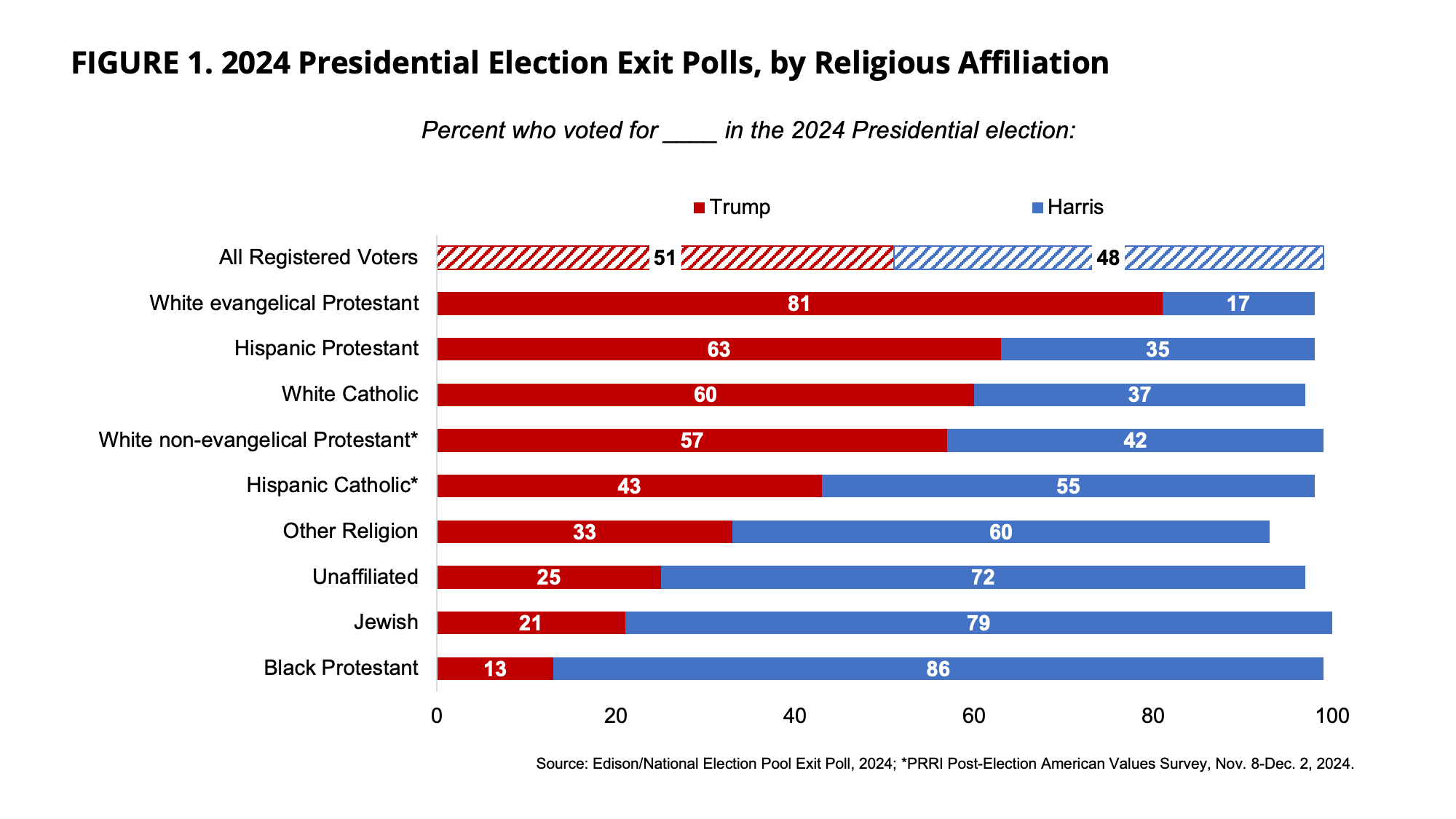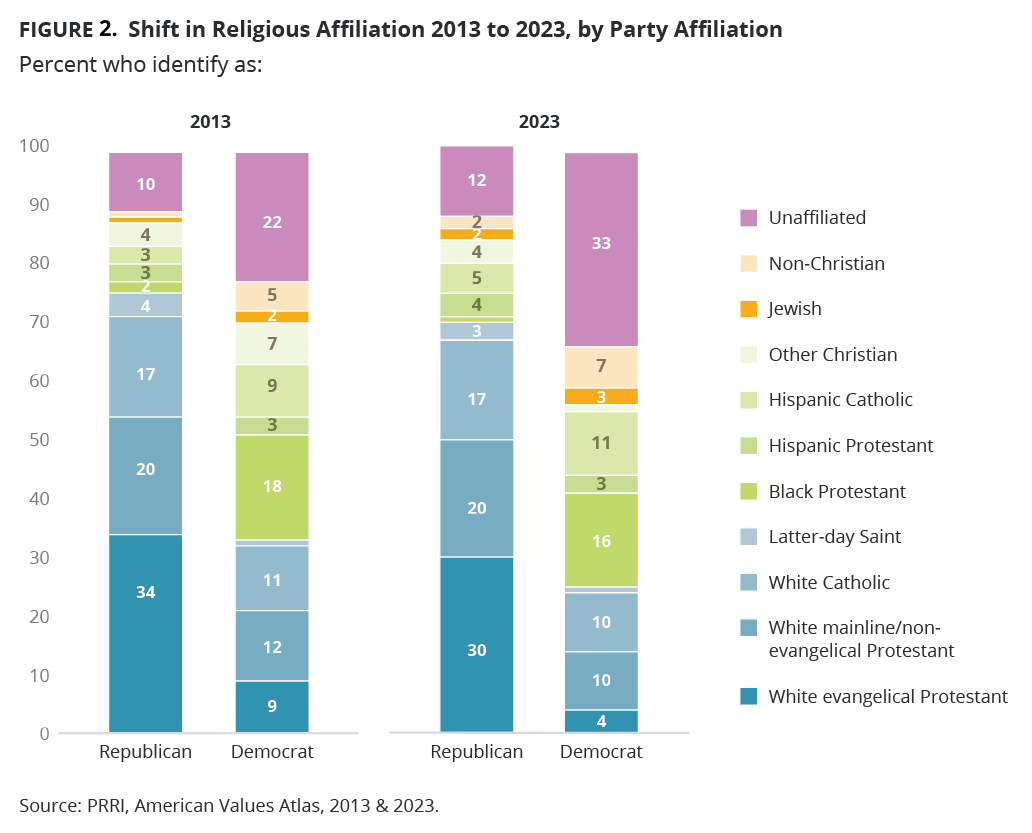The 2024 presidential election’s preliminary exit polls show that the U.S. religious vote largely broke along expected lines. White evangelical Protestants remain the most vital religious constituency of the Republican Party, with more than eight in ten white evangelicals voting for former President Donald Trump. Six in ten white Catholics and white mainline/non-evangelical Protestants also voted for Trump. Edison Exit Polls show that 72% of white Christians voted for Trump. This is hardly surprising given that the 2023 PRRI Census of American Religion finds that white Christians — who make up 41% of the country — account for nearly seven in ten members of the Republican Party.

Hispanic religious voters also broke for Trump, although Hispanic Protestants (63%) were more likely than Hispanic Catholics (43%) to vote for Trump.[1] Trump made gains among both groups compared with 2020, particularly among Hispanic Catholics, following the broader pattern of Trump’s success with Latino voters this election cycle.
While Trump won a majority of white and Hispanic Christians, he failed to capture anywhere near a majority of votes from Black Protestants (13%), Jews (21%), or Americans from other religions (33%). Moreover, just one in four Americans who are religiously unaffiliated (25%) voted for Trump. Vice President Kamala Harris’ strong performance among these groups reflects their broader presence in the religious composition of the Democratic Party. The 2023 PRRI Census of American Religion found that Christians of color, members of minority faiths, and the religious “nones” are disproportionately represented among Americans who identify as Democrats.

[1] Hispanic Catholic percentages come from the PRRI 2024 Post-Election American Values Survey.






